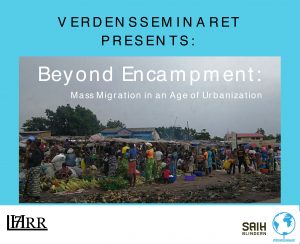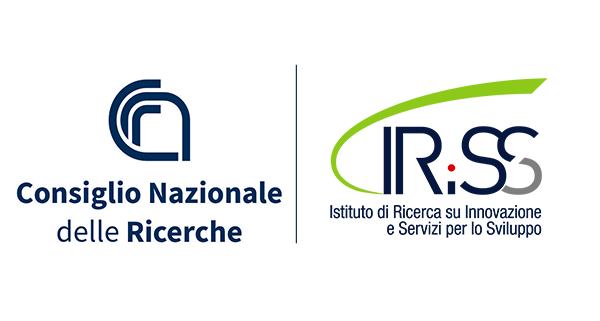Istituto di Ricerca su Innovazione e Servizi per lo Sviluppo
Resilienza - Innovazione - Sviluppo Sostenibile | Trasparenza - Organizzazione - Meritocrazia
Seminar “Beyond Encampment: Mass Migration in an Age of Urbanization” – Oslo, 10 April 2018
 The Human Rights Research League, Verdensseminaret and SAIH Blindern welcome you to a seminar on the challenges posed by mass migration in regard to urban areas, refugee camps, and potential future conflicts and humanitarian crises.
The Human Rights Research League, Verdensseminaret and SAIH Blindern welcome you to a seminar on the challenges posed by mass migration in regard to urban areas, refugee camps, and potential future conflicts and humanitarian crises.
The seminar will be held at University of Oslo on 10 of April.
Sabrina Greco, researcher of CNR IRISS, discusses with international experts the “Innovation in society: training paths and human capital enhancement in Sudan” INSO project.
In the past four years, the world has witnessed an unprecedented rise in the number of people uprooted by conflict and dire living condition, often traversing multiple regions on their way to safety. In response to the challenges posed by these patterns of conflict and migration, states and regional organizations have attempted to limit the influx of refugees and migrants and instead focus attention and resources on cooperation projects in and agreements with the countries of origin. But these initiatives disregard some decisive points, if mass migration on a global scale is to be addressed: Irrespective of the level of border control, barriers, or cooperative agreements with transit countries, people will still tend to flee and seek access to more secure countries, though not necessarily in Europe or the global north. In fact, the vast majority of those uprooted flees to and stays in neighboring countries, and today most of the people seeking refuge migrate towards and live in urban centers, not in (refugee or IDP) camps, and for those, viable solutions need to be found.
Traditionally, refugee camps have been erected in response to the mass outflow of people fleeing conflict and hardship. Usually, these camps were built outside urban centers. In fact, local authorities and refugee agencies have often been working against refugees’ access to cities. Initially intended as an emergency response, in reality large numbers of camps have turned into semi-permanent (non-) solutions to those forced to linger on in such temporary, confined and artificial habitats. While camps may make it easier for the authorities or aid organizations to provide certain services (food, medical aid, education) to the vulnerable populations residing there, in the long run, living in aid-dependency contributes to poverty, which may lead to protracted refugee situations and in turn provide fertile soil for new conflicts, including with host communities.
This panel will discuss the impact of urbanization on demographic and migratory trends, and contemplate novel approaches to the challenges posed by mass migration, including innovations in urban agriculture, smart solutions to energy efficiency, and rights based new ways of integrating refugees and forced migrants into their host communities.
What are the root causes fueling migration and protracted refugee situations? What can be done to address those root causes? And how can governments and civil society better approach the integration of refugees and forced migrants into their host communities and abroad?

Devi effettuare l'accesso per postare un commento.